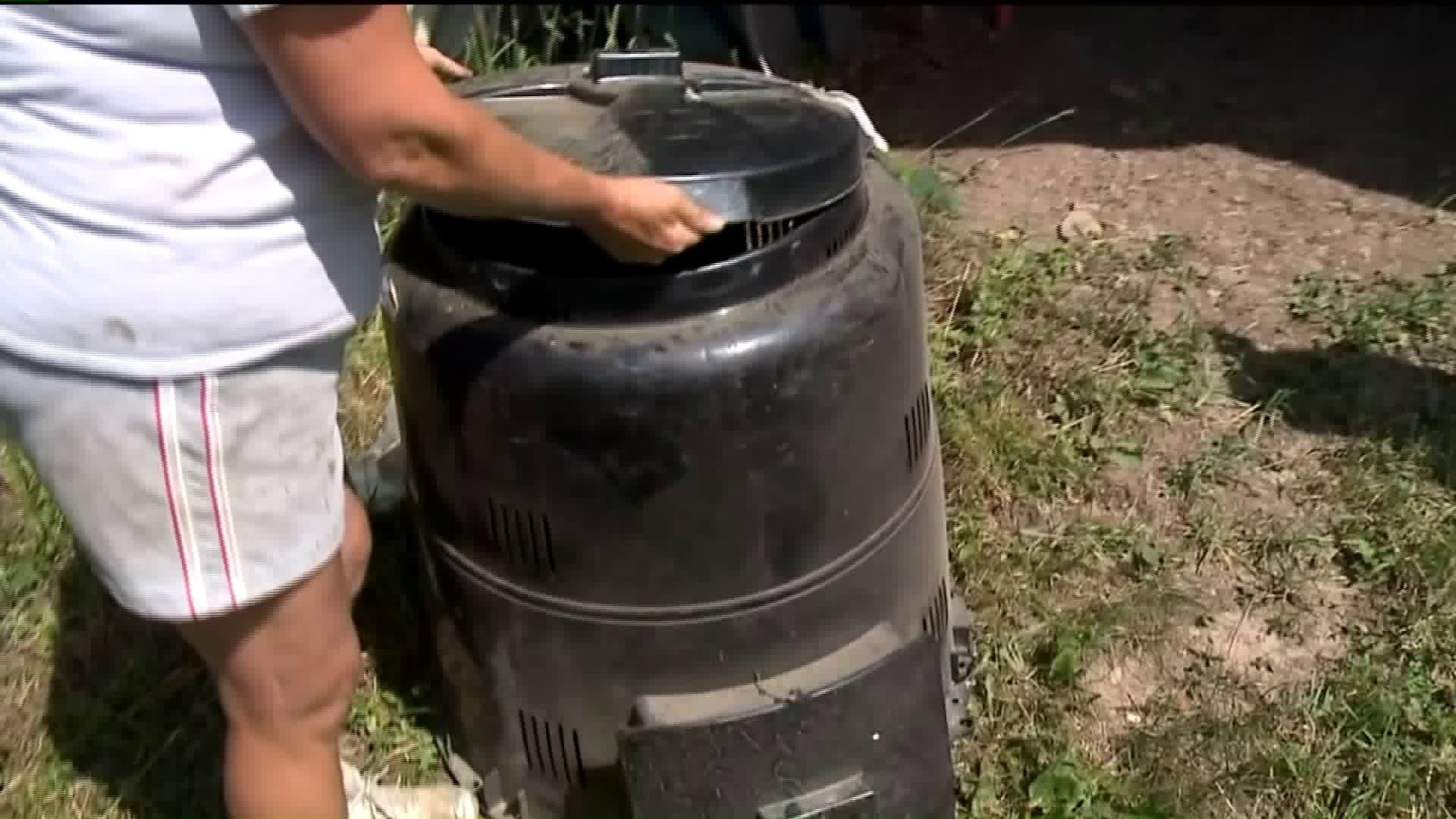CHESTNUTHILL TOWNSHIP -- Tammy Graeber isn't piling up dirt for the fun of it at The Garden of Giving near Brodheadsville. She's making fertilizer by composting, using scraps from food that she grows right in her backyard.
"We save all of our yard matter, the tops of our onion and garlic, any matter that can go back into the soil," said Tammy Graeber, The Garden of Giving.
Graeber says composting is easy.
If you want to make a lot of fertilizer, you can pile your scraps up high. If you only want enough for a small garden, you can put in barrels. Then let nature take its course.
"You start with a pile and you continue to turn it. You are going to want to get moisture on it and air. It's all about the oxygen and circulating the soil. Then you keep turning it and turning it, and organic matter goes in, breaks it down, and it becomes this nice rich soil," said Graeber.
Gardeners say even though composting takes some time, it does have its benefits.
Graeber says making her own fertilizer has saved her a lot of money. It's also good for the environment.
Volunteers who were learning how to compost were amazed to see how some scraps can be turned into something useful.
"I think it's fascinating, to be honest. I didn't know you can make this from trash. I am a city guy from New York, so I didn't even know you can do this," said Jihad Burks, Kunkletown.
Gardeners tell Newswatch 16 you should not throw meats, bones, or fats into your compost pile because they won't turn into dirt. Instead, stick to household waste like fruit and vegetable clippings, egg shells, and other dry materials.

